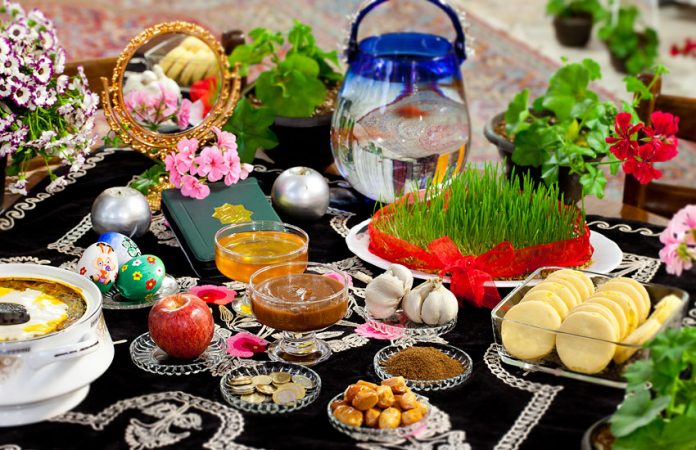Nowruz is the traditional Persian festival of spring which starts at the exact moment of the vernal equinox, commencing the start of the spring. It is considered as the start of the New Year among Iranians. Nowruz means “new day” and is celebrated either on March 20 or 21 each year, depending on the time the sun enters Aries and spring begins. It marks the beginning of the solar calendar.
Nowruz has been celebrated for over 3,700 years and is deeply rooted in the rituals and traditions of the religion of Zoroastrianism. Zoroastrianism is the world’s oldest monotheistic religions founded by the prophet Zarathushtra approximately 3,755 years ago (circa 1738 BCE) in ancient Iran.
Zoroastrianism flourished as the imperial religion of three Persian empires, and was the dominant religion from Turkey, and eastward to China during those times. Nowruz was celebrated for several centuries before other ethno-linguistic groups adapted this spring festival.
Zoroastrians devote the last 5 days of the year to the souls of the departed by praying through these 5 days. Nowruz then marks the beginning of the New Year and is celebrated as a festival hope, and new life. It brings the message of renewal, gratitude, joy, light and victory of good over evil.
Today the festival of Nowruz is celebrated by over 300 million people of several ethno-linguistic groups in Iran, Iraq, India, Afghanistan, Tajikistan, Uzbekistan, Azerbaijan, Kazakhstan, and Kyrgyzstan. In many groups it is celebrated as the start of the New Year while for some it is only a celebratory event.
A symbolic table is arranged in every Persian home called the “Haft-seen”. This consists of seven items starting with letter “S” in Persian namely sprouts, sweets, garlic, apples coins, flowers each symbolizing life, light, health, wealth, abundance, love and patience. Families gather at the Haft-seen table and await the exact moment of the arrival of the New Year which is exact time of the vernal equinox.
Nowruz celebrations span over 13 days in Iran. During the Nowruz holidays families, friends and neighbours pay visits to one another in the form of short house visits. The thirteenth day of the Nowruz festival is called Sizdah Bedar (meaning “thirteen outdoors”). People spend the day with family and friends in day outdoors in form of family picnics. It is a day of festivity in the nature.
The UN’s General Assembly in 2010 recognized the International Day of Nowruz, describing it as a spring festival of Persian origin which has been celebrated for over 3,000 years.









